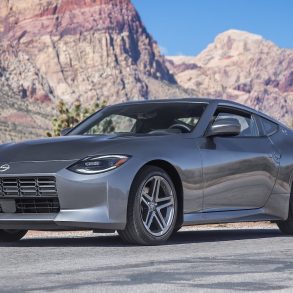Nissan Sentra
The Nissan Sentra is a compact sedan that has been in production since 1982. Over the years, it has become a staple in the compact car segment, known for its reliability, efficiency, and affordability. The latest generation, in particular, has been recognized for its upscale design and features. Some criticisms have been directed at aspects like driving dynamics, especially in comparison to some sportier rivals, and the performance of the CVT in earlier generations.
Nissan Sentra Overview
The Nissan Sentra is a compact car that has been in production since 1982. It is currently in its ninth generation, which was introduced in 2020. The Sentra is available in four trim levels: S, SV, SR, and SL. The Nissan Sentra offers a compelling choice for those seeking a compact sedan that provides reliability, affordability, and modern features. Its evolution over the generations reflects the changing needs and expectations of consumers, with the latest generation taking significant steps in offering a more refined and upscale experience.
The Sentra is powered by a 2.0L four-cylinder engine that produces 149 horsepower and 146 lb-ft of torque. It is mated to a continuously variable transmission (CVT). The Sentra is available with front-wheel drive or all-wheel drive. The Sentra gets an EPA-estimated 29 mpg in the city and 39 mpg on the highway. It is one of the most fuel-efficient compact cars on the market.
The Sentra is not the most spacious compact car on the market, but it is comfortable for five adults. The cargo space is also decent, with 14 cubic feet of space behind the rear seats. The Sentra is a good choice for people who are looking for a fuel-efficient, comfortable, and affordable compact car. It is not the most spacious or powerful compact car on the market, but it is still a good value for the price.
Nissan Sentra Sales Figures
The Nissan Sentra has generally been praised for its value proposition, comfort, and fuel efficiency. It often appeals to those looking for a dependable daily driver or a first car.
Nissan Sentra U.S Sales Data & Charts
US Monthly Sales
US Annual Sales
| Year | Sales Units |
|---|---|
| 2005 | 119,489 |
| 2006 | 117,922 |
| 2007 | 106,522 |
| 2008 | 99,797 |
| 2009 | 82,706 |
| 2010 | 94,065 |
| 2011 | 114,991 |
| 2012 | 117,000 |
| 2013 | 129,143 |
| 2014 | 183,268 |
| 2015 | 203,509 |
| 2016 | 214,709 |
| 2017 | 218,451 |
| 2018 | 213,046 |
| 2019 | 184,618 |
| 2020 | 94,645 |
| 2021 | 127,862 |
| 2022 | 77,124 |
| 2023 | 109,195 |
| 2024 | 40,082 |
US Annual Growth
Nissan Sentra Canada Sales Data & Charts
Canada Annual Sales
| Year | Sales Units |
|---|---|
| 2012 | 11,008 |
| 2013 | 14,407 |
| 2014 | 15,021 |
| 2015 | 14,940 |
| 2016 | 13,306 |
| 2017 | 13,883 |
| 2018 | 12,593 |
| 2019 | 7,719 |
| 2020 | 6,806 |
| 2021 | 10,015 |
Canada Annual Growth
Nissan Sentra Generations
Early Generations (1982–1999)
Launched as a subcompact car before moving to the compact segment in later generations. Gradually increased in size and features, becoming more aligned with American consumer preferences.
Fifth Generation (2000–2006)
Featured a more refined design and a roomier interior. Range of four-cylinder engines, with performance-oriented SE-R variant offering more horsepower.
Sixth Generation (2007–2012)
Included a more modern design, better interior quality, and enhanced safety features. Continued offering the sportier SE-R and Spec V trims.
Seventh Generation (2013–2019)
More upscale design inside and out, reflecting Nissan’s new design language. Optimized for fuel efficiency, including the introduction of a continuously variable transmission (CVT). Added modern features such as touchscreen infotainment and driver assistance technologies.
Eighth Generation (2020–Present)
A complete redesign brought a more dynamic appearance, improved materials, and advanced technology. Powered by a 2.0-liter four-cylinder engine paired with a CVT, focusing on smooth operation and efficiency. Higher-quality materials and an upscale design give the latest generation a more premium feel. Standard Safety Shield 360 suite includes features like automatic emergency braking and blind-spot monitoring.









